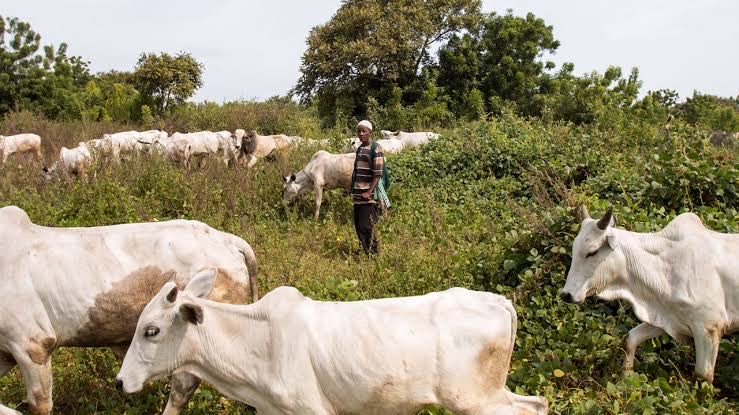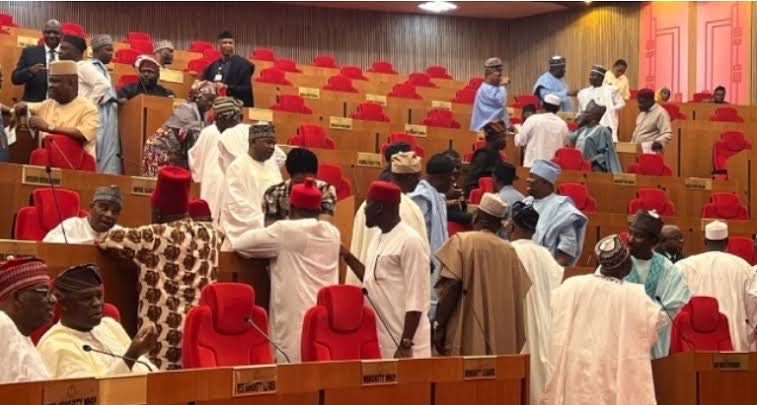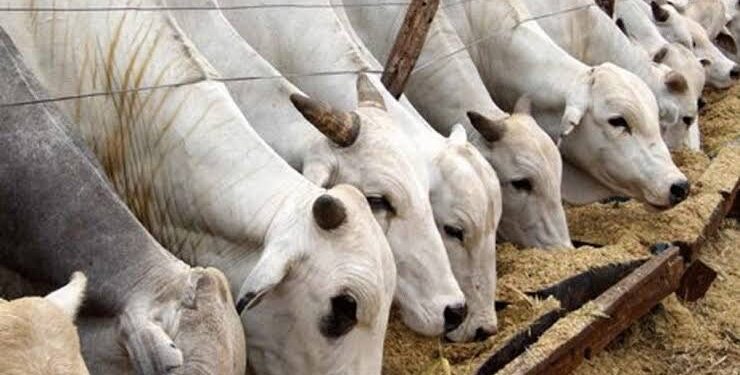The Senate recently advanced a controversial Bill to establish the National Animal Husbandry and Ranches Commission to the second reading stage, following a heated debate at the plenary session.
The Bill, titled; ‘A Bill for an Act for the Regulation of Animal Husbandry and Ranches Establishment in Nigeria as a Panacea for Farmers-Herders Crises’, was supported by Representative Titus Tartenger Zam, speaking to Benue North-West. The piece of legislation, if passed into law, is to control cattle raising and farming commerce over the country, counting setting up farms within the Pastoralists’ states of the root.
But the Bill met stiff resistance from Northern representatives, who contended that it damaged the 1999 Structure (as corrected) and ECOWAS conventions on people’s movements.

However, Senator Zam, in his lead talk, opined that the commission, on the off chance that set up, will serve as a cure for the lasting violent clashes between sedentary farmers and nomadic herders in Nigeria.
Debating on the general principles of the Bill, Senator Zam noted that the absence of an administrative system or enactment on pastoralism and animal portability, by and large, has made a chaotic situation of Survival of the Fittest, between inactive ranchers and roaming herders in Nigeria, saying the situation was unsatisfactory within the 21st-century civilized world.
“As stakeholders in the Nigeria venture and chosen agents of the individuals, we cannot bear to see on whereas the nation burn into fiery debris as a result of rough clashes between sedentary farmers and nomadic herders.
“Doing so would amount to abdication of our statutory and leadership responsibilities. The danger of farmers and herders emergencies can effortlessly be cured through a legislative therapy prohibiting open grazing in Nigeria,” the lawmaker argued.
Zam added that it was, subsequently, time to put a lasting halt to the unending circle of assaults and counterattacks by the individuals and their outside collaborators.
“Mr. President, now is the time to adopt international best practices in animal husbandry. My distinguished colleagues now is the time to bring about a law to stop open grazing. It is old fashioned, hazardous, burdensome, and must be discarded,” he stated.
He further contended based on four key arrangements within the Charge, which proposes farming as if it were reasonable elective for cattle breeding in Nigeria; advocates for the urgent need to travel from traditional animals keeping strategy to the present day strategies which are more secure and healthier to both the groups and the herders; proposes that farms be built up within the pastoralists state of beginning without driving it upon other states or communities that don’t have pastoralists as citizens, and proposes that interested parties in animals commerce must look for and obtain approvals of their have communities to set up ranches for the reason of serene co-existence.

The Bill, however, met stiff opposition from a few senators from the North as Danjuma Goje (APC, Gombe Central), his counterpart from Kebbi State, Senator Adamu Aliero, and Kano South Senator, Abdulrahman Kawu Sumaila (NNPP, Kano) kicked against restricting pastoralists to grazing in their states of root instead of the complete country’s scope of arrive.
They cited violations of the 1999 Constitution (as amended) and ECOWAS protocols on people’s movements as reasons to shape their complaint to the Bill which, according to them, was discriminatory.
They argued that cattle rearing and ranching activities were more in the North than in other parts of the country, reasoning that lawmaking should be for the entire nation and not for a section or part of Nigeria.
Goje specifically kept up that cattle routes start from the distant north and end in Lokoja as “the course does not expand to the South”.
The member representing Jigawa North-West, Senator Hussein Uba Babangida, cautioned against hasty approval given the bill’s history of controversies. However, others argued that the proposed commission’s role in resolving the farmer’s/herders crisis justified its passage. After the senate president, Godswill Akpabio put the bill to a voice vote, it was passed.
It was thereafter alluded to the Joint Senate Committee on Agriculture, Judiciary, and Legal Matters for assistance in legislative input. The committee was asked to revert to the Senate at Plenary.

































